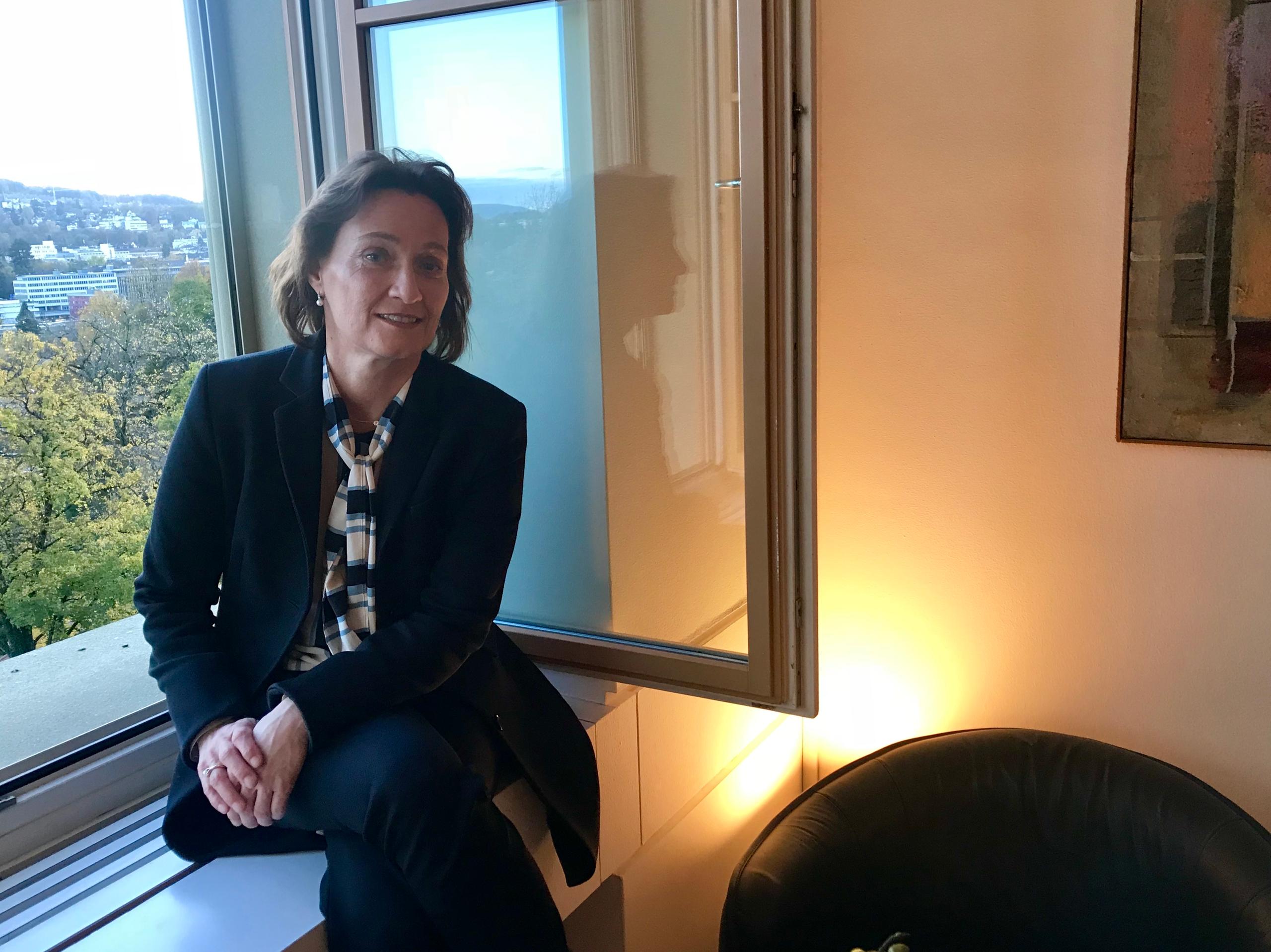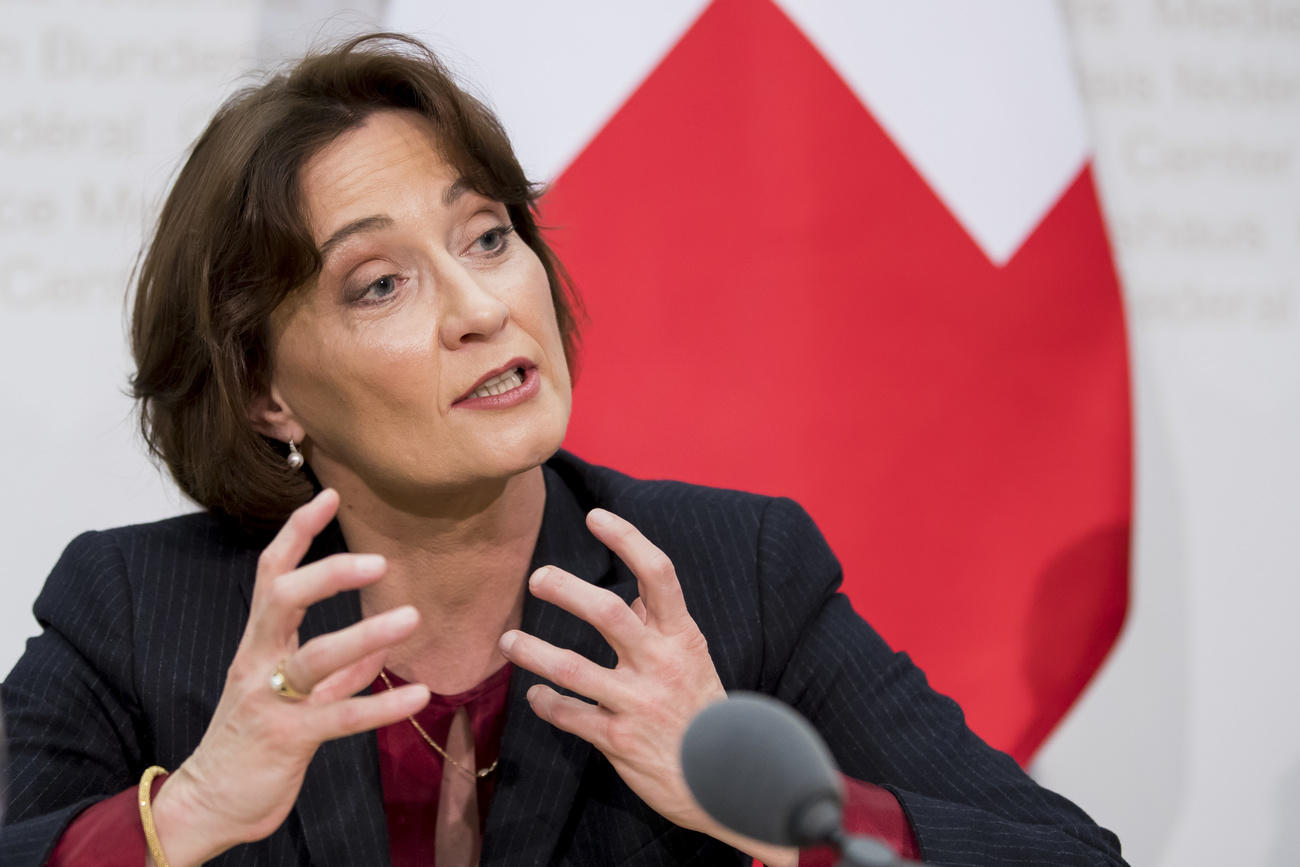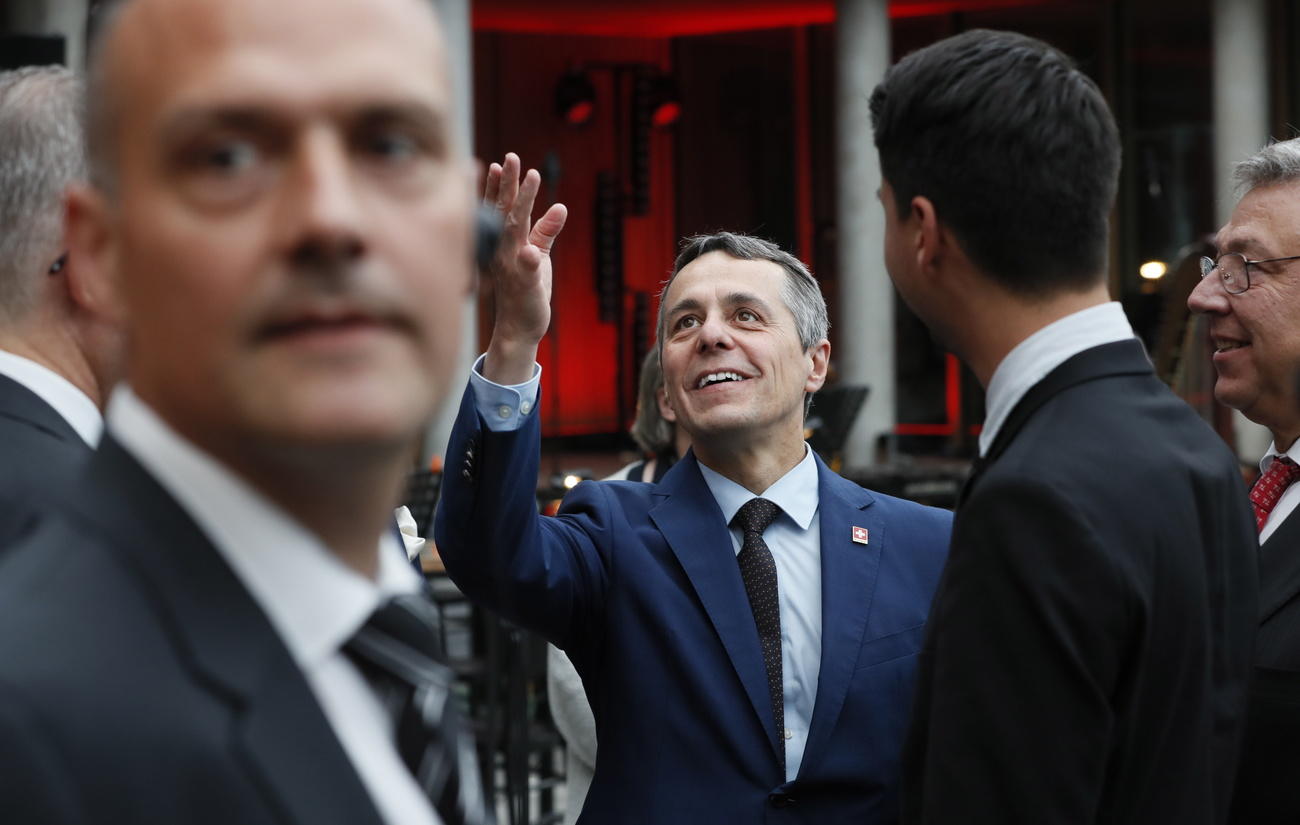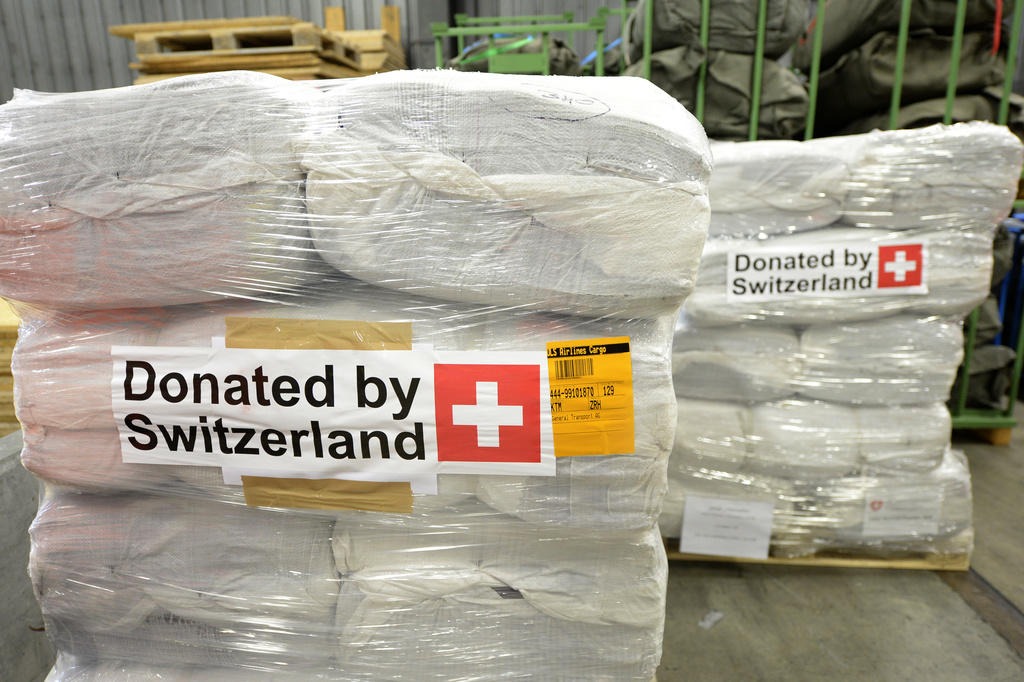Business and human rights can go together, says foreign policy boss

Doing business with other countries and promoting human rights can and do go “hand in hand”, says Swiss State Secretary for Foreign Affairs Pascale Baeriswyl. In an exclusive interview with swissinfo.ch, she talked about foreign policy strategy and her upcoming new post as head of Switzerland’s permanent mission to the United Nations in New York.
Baeriswyl is charged with writing Switzerland’s foreign policy strategy for the coming years, inspired by a reportExternal link from an expert group of which she was part. The group also included representatives from the business community such as Swiss Re insurance group and engineering giant ABB, as well as government representatives, academics and members of think-tanks.
Baeriswyl thinks the frequency of clashes between doing business and promoting human rights in the world is “overrated”. “Conflicts of interest can happen, and if they do, the decision has to go to the political level which then also has to take the responsibility for that decision,” she told swissinfo.ch. “But normally they go hand in hand, because you cannot sustainably have good business and economic relations if a country is in dire domestic shape. In most cases the economic relations do not contradict other foreign policy goals.”

Saudi Arabia and China
So what of relations with countries like China (Switzerland’s third-largest trading partner after the European Union and the US) and Saudi Arabia (a strategic partner in the Middle East, for which Switzerland has a “protecting power” mandate to represent its diplomatic interests in Iran) that have problematic human rights records?
Swiss President Ueli Maurer paid a seven-day visit to China in April this year, focusing largely on economic interests. He had also planned a visit to Saudi Arabia, but this was cancelled in the wake of the Khashoggi affair, in which top Saudi officials are suspected in the brutal killing of a critical journalist. Although the visit was postponed and Switzerland spoke out on the Khashoggi case, Maurer did go to Saudi Arabia in October, meeting notably with Crown Prince Mohammed bin Salman. Was it just a question of waiting until the issue was out of the limelight?
“No,” says Baeriswyl. “I think the challenge is how to deal with countries that do commit human rights violations or which have another system and do not have democratically elected governments.”
She notes that Switzerland has always had a policy to talk to all countries, which she considers one of the Alpine nation’s greatest strengths.
“We discuss economic relations as much as we discuss international law and human rights issues,” Baeriswyl says. “We do that with Saudi Arabia as well. I was myself this summer in Saudi Arabia and we had a very long discussion about human rights and the Khashoggi case, which indeed was shocking for the entire world.”

More
Meet the woman steering Swiss foreign policy strategy
Swiss ‘good offices’
Demand for neutral Switzerland’s “good offices” is on the rise. During Baeriswyl’s three years in her current foreign ministry post, Switzerland has been given four new “protecting power” mandates, to represent the diplomatic interests of Saudi Arabia in Iran, Iran in Saudi Arabia, Iran in Canada, and the US in Venezuela.
She explains that Switzerland has a longstanding tradition of trying to talk to everyone to build trust. “This is why, in many circumstances, Switzerland is considered neutral,” she continues. “So they come to us and want us to be the mediator between two countries that are no longer talking to each other.” And she says demand is increasing because “there are a lot of hotspots in the world where countries are starting to downgrade their bilateral relations”.
A Swiss seat on the UN Security Council?
The Swiss diplomat does not think that her country’s reputation for neutrality will be damaged by its push for a non-permanent seat on the UN Security Council. As head of the Swiss mission to the UN from spring next year, Baeriswyl will be spearheading that goal.
“I think that Switzerland can bring a lot of expertise to the Security Council in how to be a bridge builder, and that is what other countries expect us to do if we are a member,” she says.
So, if neutral Switzerland were on the Security Council in 2023-24, would it abstain on sensitive votes like imposing sanctions?
“This is a case-by-case decision,” says Baeriswyl, “but we have very good examples of countries that have a similar profile to Switzerland, like Sweden, which did a marvellous job in the Security Council as bridge builders, as promoters for peace and security. And I think this is also the path that Switzerland would choose.”
For the coming year, she says Swiss priorities at the UN will be “science diplomacy, supporting the Secretary General with regard to the reforms of the United Nations system, which needs some urgent reform, and human rights policy with regard to journalism and women’s rights”.
In the meantime, Baeriswyl is drafting Switzerland’s new foreign policy strategy, which she is confident will be done by the end of the year. She says that “it has always been the mission of our embassies to open doors for Swiss companies and universities” and that the expert report “has perhaps emphasised this more and thus made it more visible”.

More
A successful model of neutrality

In compliance with the JTI standards
More: SWI swissinfo.ch certified by the Journalism Trust Initiative
















You can find an overview of ongoing debates with our journalists here . Please join us!
If you want to start a conversation about a topic raised in this article or want to report factual errors, email us at english@swissinfo.ch.